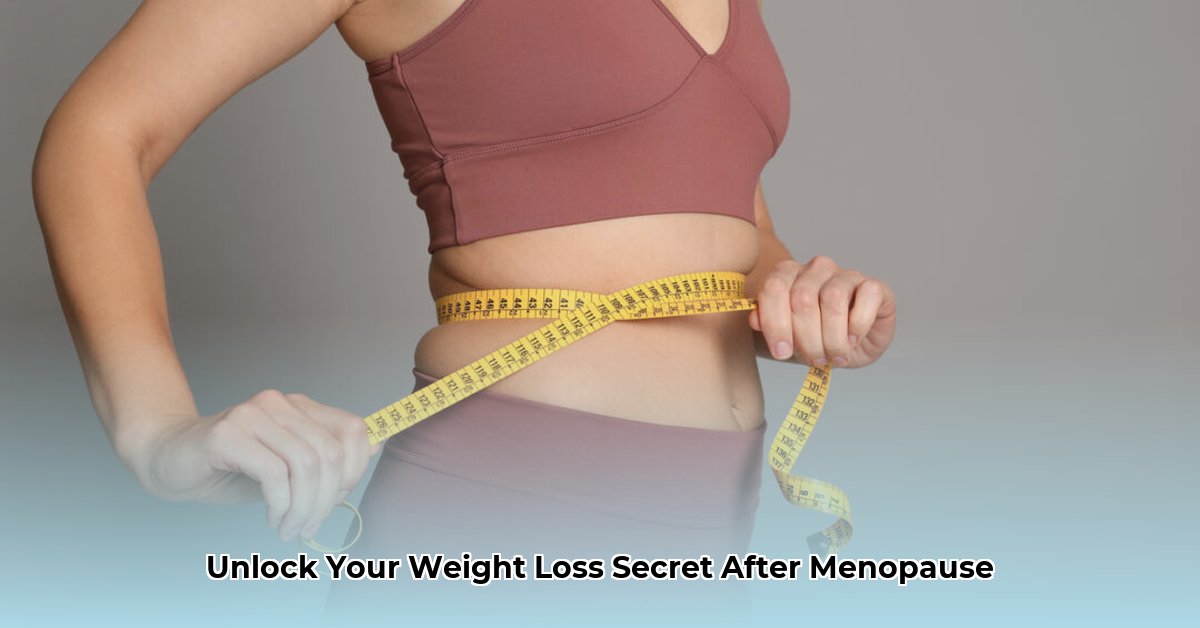
Menopause, the natural cessation of menstruation, often brings unwelcome changes, including weight gain. This shift is frequently linked to fluctuating hormone levels, particularly the decline in estrogen and testosterone. While frustrating, understanding these changes and exploring potential solutions like hormone replacement therapy (HRT) can empower you to regain control. This guide offers a comprehensive look at HRT for weight loss during menopause, emphasizing a holistic approach that combines medical intervention with vital lifestyle modifications.
Understanding Menopause and Weight Gain
The decrease in estrogen and testosterone during menopause significantly impacts metabolism and fat distribution. This hormonal shift often leads to increased fat storage, particularly around the abdomen. Is it frustrating to experience unexplained weight gain? Absolutely. But knowing the underlying causes allows for more effective management.
How HRT Might Help with Weight Management
Hormone replacement therapy (HRT) aims to replenish declining hormones, potentially improving insulin sensitivity and altering fat distribution patterns. Improved insulin sensitivity may lead to better blood sugar control, potentially aiding in weight loss or at least preventing further weight gain. However, it's crucial to remember that HRT isn't a standalone solution; it's one component of a broader strategy.
Types of HRT and Their Mechanisms
Several types of HRT exist, each with distinct effects on the body:
- Estrogen-only therapy: Suitable for women who have undergone a hysterectomy (surgical removal of the uterus).
- Combined HRT: Contains both estrogen and progestin, a synthetic form of progesterone. Necessary for women who still have their uterus to prevent endometrial hyperplasia (thickening of the uterine lining).
- Bioidentical hormones: Chemically identical to hormones naturally produced by the body. Research comparing the long-term effects and safety of bioidentical hormones to synthetic versions is ongoing.
Each type influences metabolic processes and fat distribution differently. The fundamental mechanism involves restoring hormonal balance to more closely resemble pre-menopausal levels.
Weighing the Pros and Cons: A Risk Assessment Matrix
HRT, like any medical intervention, offers potential benefits and risks. A thorough understanding of both is critical before making an informed decision.
| Treatment Type | Potential Benefits | Potential Risks |
|---|---|---|
| Estrogen-only HRT | Reduced hot flashes, improved mood, potential weight management | Increased risk of endometrial cancer (reduced if hysterectomy); potential blood clots |
| Combined HRT | Similar benefits to estrogen-only; protection against endometrial cancer | Increased risk of breast cancer, blood clots, stroke |
| Bioidentical Hormones | May offer a more natural approach; further research needed | Limited long-term safety data; potential for inconsistent potency |
Important Note: These are potential risks, not guarantees. Your individual risk profile will depend on factors like age, family history, and overall health. It’s essential to discuss these risks with your doctor before making any decisions.
The Crucial Role of Lifestyle Modifications
Regardless of your HRT choice, lifestyle modifications are paramount for successful weight management. Think of HRT as one tool in a comprehensive toolkit.
- Optimal Nutrition: Focus on a balanced diet rich in whole, unprocessed foods, including fruits, vegetables, and lean protein sources. Limit sugary drinks and processed snacks.
- Regular Exercise: Aim for a combination of cardiovascular exercise (like brisk walking, swimming, or cycling) and strength training to boost metabolism and build muscle mass. Find activities you enjoy to ensure adherence.
- Stress Management: Chronic stress significantly affects hormone balance and can hinder weight management. Incorporate stress-reducing practices like yoga, meditation, or spending time in nature.
Finding the Right HRT: A Collaborative Approach
Choosing the right HRT is a deeply personal journey requiring collaboration with your healthcare provider. This involves:
- Comprehensive Medical Evaluation: Your doctor will review your medical history, family history, and conduct a thorough physical examination to identify any underlying health issues.
- Hormone Level Testing: Blood tests will assess your current hormone levels to guide treatment selection and dosage.
- Personalized HRT Plan: Your doctor will create a customized plan considering your individual needs and risk factors.
- Open Communication: Honest and ongoing communication with your doctor is vital to address any concerns or adjust treatment as needed.
Alternatives to HRT
If HRT isn't suitable, alternative approaches exist for managing menopausal weight gain. These may include:
- Dietary Supplements: Certain supplements may support weight management, but consultation with your doctor is critical to avoid interactions with medications or potential side effects. Don't self-medicate.
- Prescription Weight-Loss Medications: These medications are not appropriate for all individuals and should only be considered under strict medical supervision.
- Therapy: Addressing emotional aspects related to body image and weight can be extremely beneficial. A therapist can provide support and coping mechanisms.
Conclusion: Embracing a Holistic Approach
Managing weight during menopause requires a holistic approach. While HRT might be a valuable tool, it's most effective when combined with lifestyle modifications. Regular check-ups with your doctor are essential to monitor progress, address any side effects, and adjust treatment as necessary. Remember, it's a partnership, and open communication is key to achieving your wellness goals. The journey toward a healthier weight is ongoing, and continuous monitoring is crucial for success. Remember to discuss any treatment options with your doctor before starting any regimen.